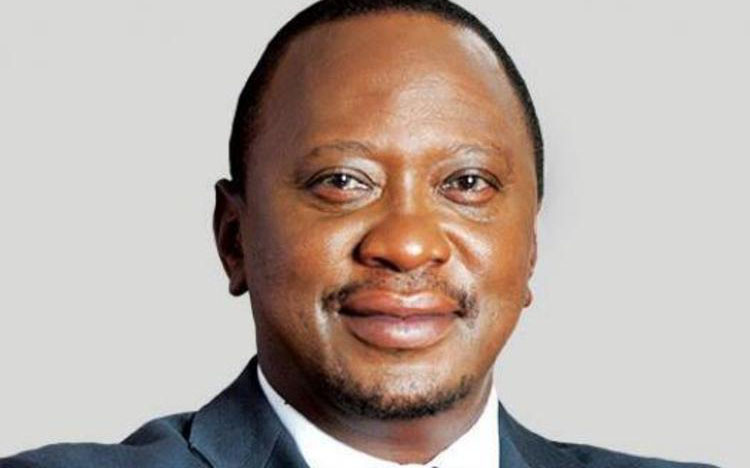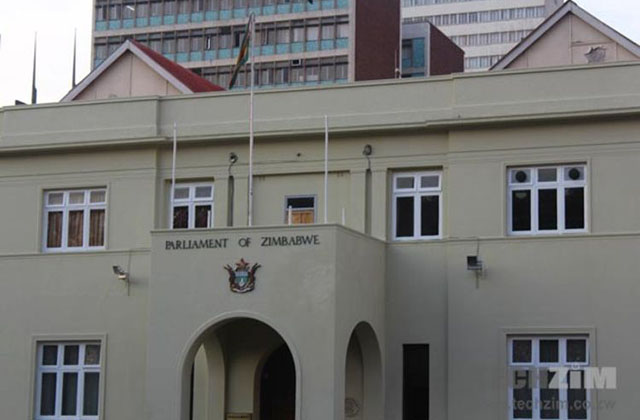Kenya nullified election: Democracy and the law

Reason Wafawarova Correspondent
The nullification of the Kenyan Presidential election result has been hailed as a sign of a maturing democracy by others, and denounced as a reversal of the people’s will by others; not least those sympathetic to President Uhuru Kenyatta, or to the IEBC — Kenya’s electoral body.
Out of the bench of six Supreme Court Judges, four voted for the nullification of the election result, while two dissented; namely Justice Njoki Ndugu and Justice Jackton Ojwang. It makes interesting reading when one takes a look at the views of the two dissenting judges.
A few weeks back I wrote on this column about how unsubstantiated the claims from NASA and Raila Odinga were, and we now know that the Supreme Court of Kenya finally did see some substance in the petition that was later submitted before it by Kenya’s opposition. We can only respect the law, much as we may disagree with some of it.
At first Raila Odinga had indicated that going to court was out of question, and that the people of Kenya would find a way of remedying the situation outside the court system. He called for a mass stay away, or national strike; but the call was largely ignored.
As an afterthought, NASA finally filed a petition with the Supreme Court, and resultantly the Presidential election result was nullified — dealing a devastating blow to Uhuru Kenyatta and his deputy and partner in politics — William Ruto. The Supreme Court rendered its judgment by a majority, but two judges were of a different opinion.
Justice Ndugu argues that at the heart of democracy are the people, and only the will of the people can determine the kind of governance a country will adopt. In other words the law cannot be superior to the collective will of the people — especially from its procedural viewpoint.
What happened on August 8, 2017 was that millions of Kenyans from all walks of life yielded to the call of democracy and queued for many hours to honour and fulfil their obligation to Kenya.
What each voter intended and wanted to do was to delegate his power to a chosen representative among the candidates — resulting in the determination of who would make it as the ultimate elected representative of the people.
Kenya votes largely on tribal lines, but that does not take away the democratic will of the voter. We can question the motive of a tribalist, but never his or her democratic right of choice.
The Kenyan election was hailed by many observes from outside the country as largely free and fair, and these include the African Union, EAC, the Commonwealth and the John Kerry-led Carter Centre Observer Mission.
They all agreed on the integrity of the election, yet all has changed now.
Did they miss something fundamental when they observed this election?
The collective will of the people through an election must be sacred, and when election observers carry out an international obligation to observe an election, their view must equally be sacred. In this instance the collective view of the observer missions was that the lection was free, fair, credible and peaceful.
The only justifiable excuse for nullifying an election result declared free, fair, credible and peaceful is compelling evidence pointing towards altering the outcome of the election in question.
Justice Ndugu argues that only such evidence can suffice to nullify an election, not mere arguments to plant doubt in the integrity of an election; especially technical arguments based on legal procedure.
The chairman of the IEBC declared the result of the election in accordance with the Kenyan Constitution, particularly Article 138 (10), having received over 90% of the results from polling stations. The result cannot possibly become less valid because one does not agree with how the chairperson received that result, regardless of whether the result is meritorious or not.
The opposition belatedly petitioned the Supreme Court on procedure and the law.
They wanted to know whether the election was conducted in accordance with the Constitution and the law, whether there were irregularities and illegalities during the conduct of the election, and if such irregularities and illegalities occurred; what remained of the integrity of the election.
This is a fair call by any measure of imagination. Justice Ndugu’s answer to these three questions is that the election itself was indeed conducted in accordance with the Constitution and the law. He argues that the IEBC demonstrated that it had adhered to the directions of the Court of Appeal in relation to a matter between the IEBC and Maina Kiai. In this appeal case, the Court cautioned that the results declared at the polling station in any election are final.
The opposition has not queried any result from any polling station so far, and yet the polling station is where people cast their vote, and it is where that vote is counted in the presence of all representatives of political parties.
Not different to the Zimbabwean electoral system. The polling station is the heart of an election, and only what happens there can uphold or nullify an election result. It is what happens at the polling station that petitions should seek to address, and it cannot be in dispute that the agreed election result at a polling station is final.
What every ordinary Kenyan voter wants to know is whether or not voters were registered properly, whether or not such registered voters were identified properly and correctly at polling stations, whether or not the voters were allowed to cast their vote peacefully and freely, and finally if the votes were counted, verified, and endorsed at the polling station before the result was declared.
The opposition has not raised any issues related to how the vote was carried out at the polling station, yet the polling station is the heart of any election. That is disturbing.
According to teams of observer missions, all answers to all of the questions raised above were in the affirmative, and that is why the Kenyan election got a clean bill of health report.
In short the observer missions are of the opinion that the election was conducted properly, at least at the polling station.
Obviously the observer teams do not enter computer servers, and they are also not mandated to observe the backend administration of the electoral process.
It does not appear like the opposition provided any meaningful evidence to upset the results announced at the polling stations, or any evidence to show that such results do not tally with what the
National Tallying Centre announced. The opposition has challenged none of the results counted and agreed by the agents at the polling stations.
Rather the opposition put up a fierce fight to challenge how the results were transmitted from the polling stations to the National Tallying Centre, capitalising on identified instances of inconsistencies with the dictates of the electoral law.
It is hard to tell how unchallenged results from polling stations can lose their numerical value simply because someone has not transmitted them in a certain legalistic way, but has not exactly changed their numerical value in the process.
The process of transmitting results from polling stations to the National Tallying Centre could not in itself upset the will of the people, unless such transmission somehow diminished the numerical value of the transmitted results.
One thousand votes transmitted with an accompanying Form X according to the law, does not have a greater numerical value than a thousand votes safely and securely transmitted without the said legal Form — regardless of whether the omission was intentional or not.
According to Justice Ndugu, the opposition did not prove in court that the voter’s will was in any way affected by any of the cited irregularities, which were largely procedural and administrative in the view of the learned judge.
The judge also argued that there was no compelling evidence to prove that the irregularities cited were deliberate on the part of the IEBC, or that they were carried out in bad faith.
Justice Jackton Ojwang notes that the petition centred on the claim that the Presidential election was not conducted in accordance with the Constitution, that there were traceable irregularities, and that the election thus lacked integrity.
He argues that the law in fact provides for the election to be primarily conducted manually, and only partially electronically. That alone weakens the argument about the electronic process having been carried out irregularly.
It is wrong to nullify the election simply because of a manifestation of an irregularity limited only to the procedural process of electronically transmitting an election result that has already been agreed upon by the contesting parties, Justice Ojwang argues.
There is need for conclusive evidence that the will of the people was indeed subverted, and there simply was no such evidence provided before the court by the petitioners.
Regarding the issue of the IEBC having failed to adhere to the Constitution, this is what Justice Ojwang had to say:
“As regards the invocation of the Constitution as a basis for annulling the electoral process, only general attributions of impropriety have been made, and furthermore, without adherence to the prescription that the task of interpreting the Constitution with finality rests with no one but the Courts — in this case, with this Supreme Court.”
Justice Ojwang is of the opinion that the evidence provided was based on generalisations and hearsay, something raised during proceedings by Professor Lumumba, representing the IEBC.
Justice Ojwang further argues; “In such a marginal state of merits in the case challenging the conduct of elections on 8th August, 2017, it is clear to me beyond peradventure, that there is not an iota of merit in invalidating the clear expression of the Kenyan people’s democratic will, which was recorded on 8th August, 2017.”
There is little doubt that the electoral process in terms of the voting process did carry the vital features of merit, and that is why the observers were unanimous in declaring the election free and fair.












Comments